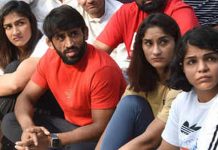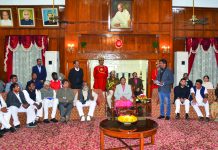
Assam, if not Barak valley, is otherwise burning over the debate of Citizenship (Amendment) Bill, 2016. If one follows the media reports can believe that the Brahmaputra valley has been witnessing an uproarious situation for past few weeks now. Other states of the northeast region have also started experiencing the heat of the pertinent debate on Citizenship Bill. Few observers compare the situation to the days of Assam agitation, which culminated in 1985 with an accord signed by the agitators and the Union government in New Delhi.
Millions of participants in the six-year-long agitation wanted to deport all illegal migrants (Bangladeshi nationals) from Assam, but, the leaders agreed in the accord to accept the migrants till 25 March, 1971. The agitation led by All Assam Student’s Union (AASU), witnessed the sacrifices of over 850 martyrs and thousands of others who all wanted to deport the illegal migrants with the national cutoff year (1951). However, the accord only agreed to identify people who had entered Assam after 25 March, 1971, as illegal foreigners. Need to be mentioned that the accord was never placed in the Parliament for endorsement. After more than three decades of the signing of the accord, the people of Assam (more precisely the civil society group representatives and media stalwarts in Brahmaputra valley) are fantasising of another uprising. This time it is against the Centre’s initiative to grant citizenship to the religious asylum seekers from Bangladesh, Pakistan and Afghanistan. Hundreds of Assam based organisations, including few from other parts of the region, are on the streets asking the central government to withdraw the Citizenship Amendment Bill, 2016. They came out with a clear demand that the Narendra Modi-led government’s move to grant citizenship to those religious asylum seekers (including Hindu, Sikh, Buddhist, Jain, Parsi and Christians from the three neighboring countries who had taken shelter in India prior to 31 December 2014) must be abandoned. The logic include that Indian citizenship cannot be conferred on the basis of religion as it is a secular country and if done it would go against the spirit of the constitution. The other one, which has been supported by 95% agitation organisations, argues that Assam has already taken the burden of numerous illegal migrants (from 1951 to 1971) and it must not get more migrants, as there is a threat to Assam’s demography and Assamese as language.
The protest escalated when the Joint Parliamentary Committee (JPC) arrived in Guwahati for the hearings. A number of indigenous organisations, local politicians, intellectuals, media personalities, etc. assembled on the venue to raise their voices against the Bill. However, subsequent hearings in Silchar of Barak valley witnessed a different picture as most of the organisations came out in support of the Bill. Media organisations in Assam came out to oppose the Centre’s move. Even, some of the editors of Assam’s prominent newspapers and news channel met Chief Minister Sarbananda Sonowal who assured them that the BJP leader would protect the interest of Assamese people. Many protesters argued that the amendment would go against the spirit of Assam accord and AASU, Asom Sahitya Sabha, Asom Gana Parishad along with many ethnic outfits of the State made it clear that they would not accept any migrants after 25 March ’71.
Even, Centre has assured that Assam or northeast region will not face implications if the Bill is implemented, there are people who are opposing the exercise. The repeated assurance of the Assam government that it would not go against the interest of the people only indicates of a resolution expected to surface soon. The influential minister in Sonowal’s cabinet, Dr Himanta Biswa Sarma, has made it clear that the state government will take a position over the matter only after the release of National Register of Citizens (NRC)’s final draft which will by 30 June. The updating of NRC is presently going on in Assam with the direction and monitoring of the Supreme Court. “The final draft will provide a clear picture of the volume of people taking shelter in the state without valid documents,” Sarma said. One of the government sources pointed out that those without valid papers would not only be Bangladeshi Muslims or Hindus, but a mix of Rajbongsi, Hajong, Jayantiya, Bishnupriya, Chakma, Garo, Khasi, Boro, Adivasi, etc. people. Locals in the region would find it difficult to raise voices against the ethnic families. Therefore, the anger will be concentrated on Bangladeshi migrants (Muslims or Hindus) only. If the amendment identifies only the Muslims as the illegal settlers, then the government should take the responsibility in indentifying Bengali speaking Hindus from Bangladesh. This seems to be relatively an easy solution for the governments in Dispur and New Delhi.
The author is a Guwahati based political commentator
letters@tehelka.com











